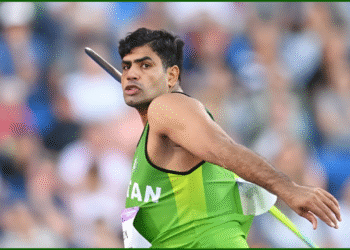In a highly anticipated decision, the International Olympic Committee (IOC) is set to vote this week on whether boxing will reclaim its spot at the Los Angeles 2028 Summer Olympics. Insiders suggest that approval is all but certain, fueled by the sport’s enduring global appeal and a concerted effort to resolve past controversies that threatened its Olympic future. The decision marks a pivotal moment for boxing, which has faced uncertainty in recent years but remains one of the Games’ most storied and watched events.
Boxing’s Olympic journey has been a rollercoaster. Dating back to the ancient Games and a staple of the modern Olympics since 1904, the sport has produced legends like Muhammad Ali, Teófilo Stevenson, and Claressa Shields. However, its inclusion came under scrutiny after the Tokyo 2020 and Paris 2024 Olympics, where governance issues within the International Boxing Association (IBA) led to tensions with the IOC. Concerns over judging integrity, financial transparency, and athlete safety prompted the IOC to strip the IBA of its authority to oversee Olympic boxing, leaving the sport’s future hanging in the balance.
Now, a new chapter appears to be unfolding. The IOC has taken direct control of boxing’s Olympic operations, partnering with national federations and a coalition of stakeholders to ensure a smoother, more transparent framework for LA 2028. This week’s vote, scheduled during the IOC’s executive board meeting, is widely expected to greenlight boxing’s return, buoyed by its massive fanbase and television ratings. “Boxing brings a raw, universal energy to the Olympics,” said IOC member Anita DeFrantz. “It’s a sport that resonates across cultures and continents, and we’re confident it can thrive under better oversight.”
The decision comes as Los Angeles prepares to host its third Olympics, with boxing set to take center stage at a yet-to-be-finalized venue—though rumors point to the iconic Staples Center (now Crypto.com Arena) as a frontrunner. The city’s rich boxing history, from the 1932 and 1984 Games to its vibrant fight culture, makes it a fitting backdrop for the sport’s resurgence. Local promoters and athletes are already buzzing with excitement, anticipating a boost to grassroots programs and a spotlight on emerging talent.
For athletes, the stakes are personal. “The Olympics are the pinnacle,” said Javier Morales, a 22-year-old amateur boxer from East LA training for a 2028 bid. “Knowing it’s back gives us something concrete to fight for.” Women’s boxing, which debuted in 2012, is also expected to expand, with calls for additional weight classes to match the men’s divisions—a move that could further elevate the sport’s gender equity profile.
Critics, however, remain cautious. Some argue that the IOC must address lingering concerns about concussion risks and officiating consistency to fully restore trust. Yet supporters counter that boxing’s absence would leave a void in the Olympic spirit, where tales of underdog triumphs and knockout drama have long captivated audiences.
If approved, boxing’s LA 2028 return will cap a remarkable comeback story—one of resilience, reform, and renewed ambition. The sport’s ability to adapt while retaining its visceral appeal could set the stage for a new golden era, blending tradition with a modernized approach. As the IOC prepares to cast its vote, the boxing world holds its breath, ready to step back into the ring on the planet’s biggest sporting stage.
With the decision imminent, all eyes are on Lausanne, where the IOC’s verdict will echo from the committee room to gyms and arenas worldwide. For a sport that’s dodged knockout blows before, LA 2028 could be the ultimate redemption round.


















































